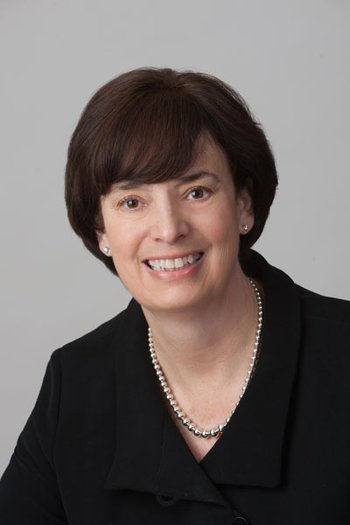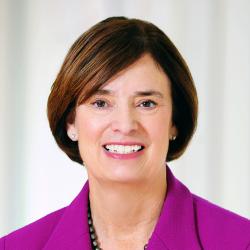
Editor’s note: The opinions expressed by the author do not necessarily reflect the opinions of the AAMC or its members.
In 2011, I left the AAMC to become senior health counsel for the U.S. Senate Finance Committee, which is at the epicenter of national health policy and politics in Congress. With my background at the AAMC, I was predisposed to have a positive view of academic medicine. But I was not expecting to learn that members of Congress and their staffs also have such high respect for the principled, evidence-based advocacy that medical schools and teaching hospitals provide. When our community seeks to be heard, public officials listen.
I returned to the AAMC in May 2016 as chief public policy officer, succeeding Atul Grover, MD, PhD, whose advocacy leadership I have long admired. One year later, I continue to draw upon my invaluable experience in Congress, along with more than 20 years of health policy work and my education in pharmacy and law. But what I have most valued over the past year, and what I believe has been keenly effective, is the active engagement of AAMC constituents who are on the front lines at our medical schools and teaching hospitals.
When leaders of academic medicine articulate their views with strength, passion, and evidence in opinion pieces, letters to the editor, and other communications, members of Congress listen. And whether Congress is assessing issues or developing policies responding to those issues, public officials often reach out to academic medicine because they trust our expertise in health care delivery, education, and research and our understanding of how these areas intersect with public policy.
“Academic medicine’s missions of clinical care, education, and research are the foundations that have made U.S. health care the best in the world. This personal conviction is deep and gets me up every morning, ready to champion.”
Karen Fisher, JD
AAMC
This credibility has been essential in the past year, especially during the whirlwind of the last six months, when so many major policy issues that affect academic medicine have been in play—health care coverage, research funding, health care workforce investments, immigration policies, federal budget priorities, and veterans’ access to care. Our credibility has enabled us to address these issues effectively through position statements to the press and public, fact sheets and educational materials for constituent advocates, and leadership in coalitions with like-minded organizations, as well as direct interactions with legislators and government officials.
Relationships and timing key to success
With every Congress and administration, the academic medicine community will agree on some issues and disagree on others. But personal relationships built on credibility and respect are the best way to weather disagreements today and reach agreements tomorrow.
Leaders at medical schools and teaching hospitals have built personal relationships with federal legislators through frequent meetings with them, both in Washington and at home, and through direct phone calls that emphasize the importance of academic medicine at crucial times. One of the most effective tools for relationship building is having officials and staff spend a day at an institution for a hands-on program that shows the process of medical education: the benefits it provides, its complex funding mechanisms, and the essential role of government in providing the financial support it needs. The AAMC’s Project Medical Education program helps institutions organize these experiences so that policymakers and community leaders have the necessary information to make insightful decisions on issues that affect the future of medical education.
It has always been true that a single senator can make a big difference by blocking debate on a bill or securing concessions for constituents. And from my time on the Hill, I learned that congressional and committee leaders are especially powerful in their control of schedule, agenda, and strategy.
This is particularly true today. With the current makeup of the House and Senate, individual legislators, as well as like-minded subgroups, increasingly have more sway in the decision-making process. This was evident during the health coverage debate this spring. By withholding votes at a time when every vote counted, one or two representatives could determine whether his or her party achieved its legislative goals. The lesson for everyone is obvious: academic medicine needs relationships with all members of Congress because any senator or representative could be very influential at any given time.
Working on the Hill also taught me that timing is everything. When a bill needs to be written, Congress does not wait for anyone. It is therefore crucial for our community to identify opportunities on fast-moving legislative vehicles and be persistent on an issue over time to ensure that members and their staffs understand our priorities before a bill starts to move. Effective advocacy requires being on call 24/7.
Throughout my career, I have been fortunate to have had the opportunity to focus on health policy issues. As I pass my one-year mark at the AAMC, I feel especially privileged to advocate for something I strongly believe: academic medicine’s missions of clinical care, education, and research are the foundations that have made U.S. health care the best in the world. This personal conviction is deep and gets me up every morning, ready to champion.
It also has been gratifying to work with my AAMC government relations colleagues, who are among the best lobbyists on the Hill, and to have available to me the expertise of other AAMC staff. It has been an extraordinary opportunity to partner in advocacy with clinicians, educators, scientists, and executives in academic medicine, who are among the most knowledgeable in their fields. For me professionally, that’s as good as it gets.
